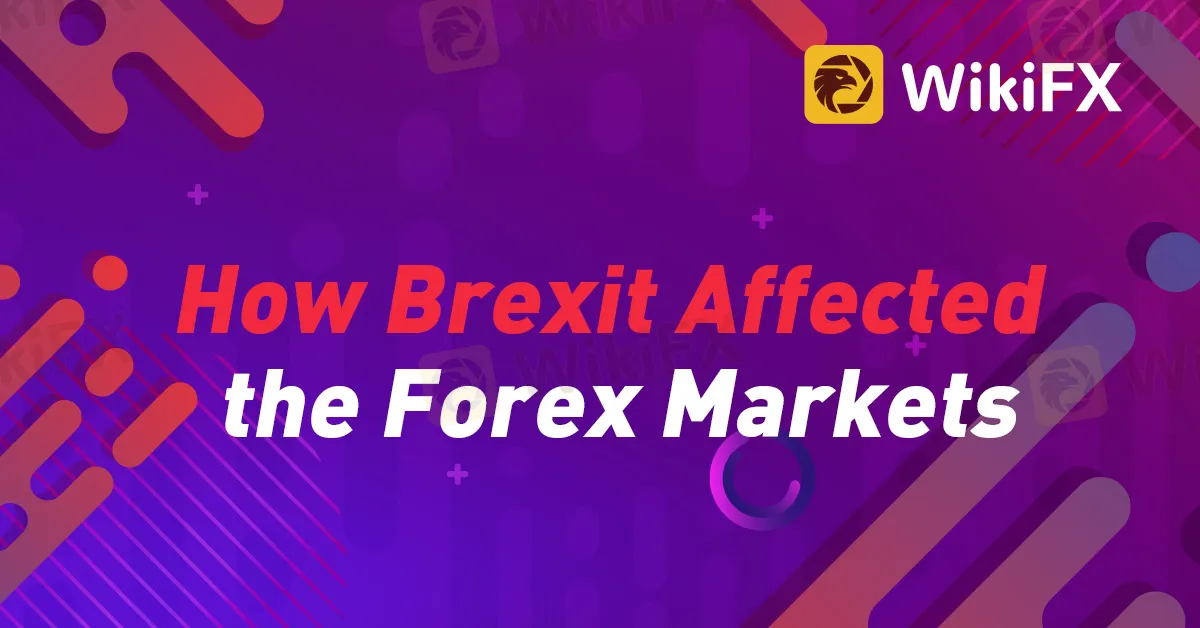简体中文
繁體中文
English
Pусский
日本語
ภาษาไทย
Tiếng Việt
Bahasa Indonesia
Español
हिन्दी
Filippiiniläinen
Français
Deutsch
Português
Türkçe
한국어
العربية
How Brexit Affected the Forex Markets
Abstract:The United Kingdom's decision to leave the European Union, commonly known as Brexit, had a profound impact on various industries, including the forex market. The uncertainty surrounding the negotiations and subsequent outcomes led to significant volatility and changes in currency valuations.

The United Kingdom's decision to leave the European Union, commonly known as Brexit, had a profound impact on various industries, including the forex market. The uncertainty surrounding the negotiations and subsequent outcomes led to significant volatility and changes in currency valuations.
Immediately following the Brexit referendum in 2016, the British pound (GBP) experienced sharp declines against major currencies such as the US dollar (USD) and the euro (EUR). The uncertainty surrounding the future relationship between the UK and the EU led to increased market volatility and a loss of investor confidence in the pound.
As negotiations progressed, the forex markets reacted to every development, with currency pairs involving the pound experiencing heightened volatility. Traders closely monitored political statements, economic indicators, and negotiation updates, adjusting their trading strategies accordingly.
Brexit also impacted the euro, especially for currencies closely tied to the EU economy. The euro experienced fluctuations as investors assessed the potential implications of Brexit on the European economy and the future stability of the EU. Currency pairs like EUR/GBP were particularly affected by Brexit-related news and market sentiment.
Moreover, regulatory changes accompanied Brexit. The UK's withdrawal from the EU resulted in the Financial Conduct Authority (FCA) taking over the regulation of the UK financial markets. These changes had implications for forex brokers operating in Europe, as they needed to adapt to new regulations and licensing requirements.
Navigating the forex markets during the Brexit period required careful analysis, risk management, and staying updated with the latest developments. Traders had to be prepared for sudden market movements and adjust their trading strategies accordingly.
As a trader, it is essential to access reliable information sources to stay informed about Brexit and its impact on the forex markets. WikiFX provides up-to-date news and analysis on market events, including the latest updates on Brexit and its implications for traders.

Disclaimer:
The views in this article only represent the author's personal views, and do not constitute investment advice on this platform. This platform does not guarantee the accuracy, completeness and timeliness of the information in the article, and will not be liable for any loss caused by the use of or reliance on the information in the article.
Read more

Will natural disasters have an impact on the forex market?
The forex market is known for its rapid responses to global events, but the influence of natural disasters, such as earthquakes and typhoons, can be less straightforward. While headlines may scream about catastrophic damage and economic disruption, the long-term effects on currency values often depend on a blend of immediate shock and underlying economic fundamentals.

Navigating the Intersection of Forex Markets, AI Technology, and Fintech
The financial world is transforming, driven by the rapid integration of artificial intelligence (AI) and innovative fintech solutions. This change is most apparent in forex markets, where algorithmic trading and deep learning are redefining strategies, risk management, and decision-making. In this article, we explore how AI-driven technologies are not only revolutionizing forex trading but are also propelling fintech innovations that enhance customer experiences, bolster security, and unlock new market opportunities.

The One Fear That’s Costing You More Than Just Profits
The fear of missing out (FOMO) is NOT what you think it is! Read the three lesser-discussed components that contribute greatly to FOMO trading!

SocialFi and the Forex Market: A New Era for Decentralized Social Trading?
The worlds of social media and decentralized finance (DeFi) have converged under a new banner—SocialFi. Short for “Social Finance,” SocialFi leverages blockchain technology to reward user engagement, giving individuals direct control over their data and interactions. While SocialFi has primarily emerged in the context of content creation and crypto communities, its principles could soon revolutionize the forex market by reshaping how traders share insights and monetize social influence.
WikiFX Broker
Latest News
How Crypto Trading Transforms FX and CFD Brokerage Industry
UK would not hesitate to retaliate against US tariffs - No 10 sources
FCA Warns Against 10 Unlicensed or Clone Firms
CySEC Warns Against 14 Unlicensed Investment Websites
Top Currency Pairs to Watch for Profit This Week - March 31, 2025
Will natural disasters have an impact on the forex market?
Philippines Deports 29 Indonesians Linked to Online Scam Syndicate in Manila
Navigating the Intersection of Forex Markets, AI Technology, and Fintech
Exposed: Deceptive World of Fake Trading Gurus – Don’t Get Fooled!
AI-Powered Strategies to Improve Profits in Forex Trading
Currency Calculator







